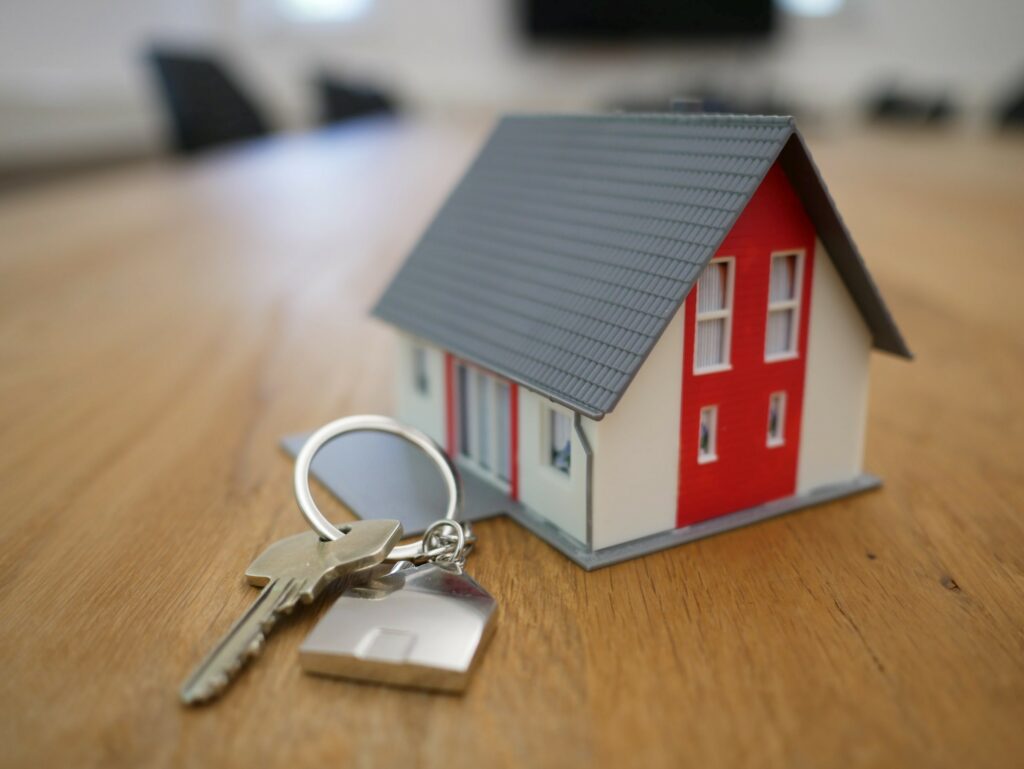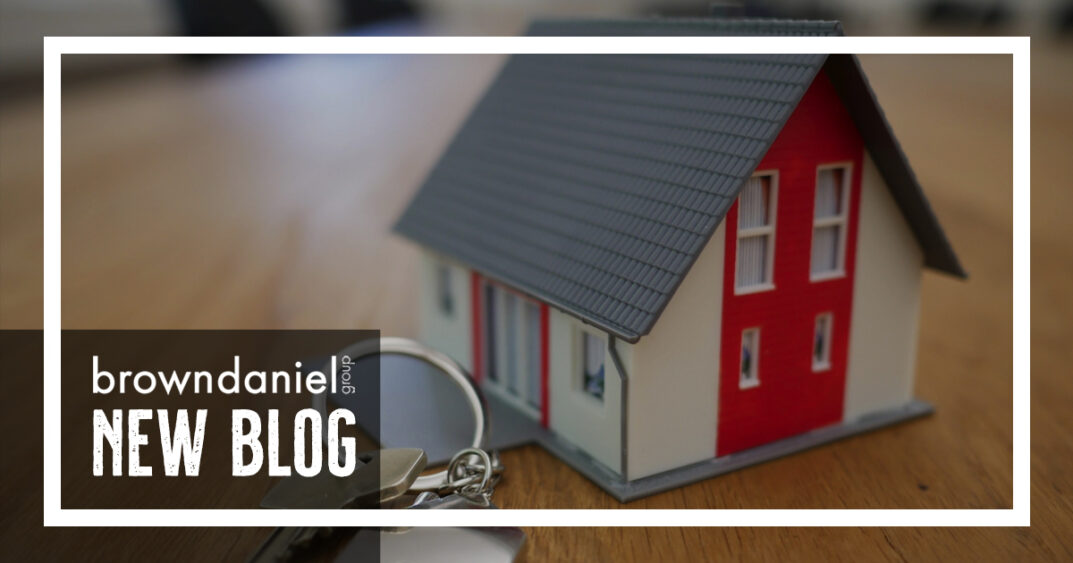
After a long and tiring search, you’ve finally found your dream home. Now the work and waiting really begins as you line everything up to work toward a closing date for what will hopefully be your new home. If you have applied for a mortgage loan as part of the home buying process, make sure you think about all of the things you should avoid doing after submitting that application. Even if you have been pre-approved, there are still things you that could make your mortgage plans fall through. Your goal now is to get through the time between putting in an offer to closing on your house without making any of the mistake that can derail your mortgage application process. Following this advice will help keep you on track so that your full home buying experience is a good one.
Do Not Change Jobs
Losing your job or making a voluntary employment change, even if it seems like a positive step up, can impede the lending process. If you have any expected employment changes on the horizon, it is imperative that you go ahead and discuss these changes with your immediately. Lenders need to have a clear insight into your ability to pay your mortgage in order to feel comfortable approving your loan. No matter how good of an offer you receive, if you can avoid changing jobs until after the purchase of your home, that is what you need to do. If a change is unavoidable, the ideal situation is that you move to either a similar paying or higher paying job. Any employment change that negatively impacts your overall financial health could be a deal breaker for your lender. Income changes are frequently seen as a red flag that could prevent the purchase of your home.
Avoid Incurring Additional Debt

Your new home will need a lot of new furniture right? And your old SUV has a lot of miles on it so you might as well start looking for a new right, correct? Not right now! Before you make any major purchases or open any new credit accounts, you must wait until you’ve closed on your new home loan. Even if the local furniture store is offering must have deals, or you find the perfect new car, the time between putting an offer in on a new home and closing on the deal is not the time for these expenditures. If you incur new debt from the time you get pre-approved to the time you close, this could change your debt-to-income ratio, which could be a major issue for your lender.
Don’t put yourself in a position where you lose your loan and therefore your dream home just because you are afraid to miss out on a sale, or because you simply can’t wait to begin furnishing all the rooms in your new house. The last thing you want is to open a new credit account at the local furniture store, only to have all of that furniture delivered to your current home or a storage unit because your financing fell through.
This probably leads you to wonder what the magic number is when it comes to your debt to income ratio. The number depends greatly on your credit score and other factors, but generally speaking most lenders require a debt to income ratio no higher than 43%, while many lenders would set that number even lower at 36%.
Do Not Apply for New Credit
We mentioned the pitfalls of applying for a new credit card in order to make a specific purchase, or in obtaining a new auto loan to make a car purchase. But did you know that it can be a deal breaker for your mortgage company to open a new credit account, even if you don’t use it? Some people think that adding to their overall available credit by opening additional accounts but not using them can help their mortgage application get approved easier. However, if you’ve already been pre-approved for a mortgage, making any change at all in your available credit will not help you at all when it comes to the final approval process. In fact, hard inquiries on your credit and/or the addition of new accounts may hurt your credit score, which can cause issues as you get closer to your closing date.
Remember that any credit application beyond that of your mortgage can lower your score, as well as reduce the age of the credit in your history. These are both changes that can cause problems during closing because the terms of your loan may change, or you may lose your approval completely. If you do add a new credit card during this time, avoid making any purchases on the new card until after you’ve finalized your mortgage.
Don’t Close any Accounts

Don’t assume that having a lot of credit cards is a negative point when you apply for a mortgage loan. In fact, having cards with either a zero balance or low balances can actually put you in a better position to receive approval for a mortgage loan. Having several open credit lines can raise your credit score by increasing your credit utilization ratio, also known as your credit to debt ratio. Having a large amount of available credit with a correspondingly low debt amount looks good to creditors and to potential lending companies. Meanwhile, anytime you close an account, this can lower that utilization ratio. This means that closing any credit account can be a big mistake if you haven’t yet closed on your home. Continue to pay down any outstanding debt that you may owe, while keeping those credit accounts open until after closing.
No matter where you are in the loan process, your lender can continue pulling up your credit score and checking to see if anything has changed. This can be done all the way up until the day of your closing, so there really is no safe time to begin making changes to your accounts.
Keep up with Your Payments
Don’t let the stress of applying for a mortgage, packing up your belongings and searching for your dream home cause you to forget to make any of your regular payments. When you are in the loan approval process, any late or missed payments can have a negative impact on your ability to buy your home. Anything that can drop your credit score should be avoided when you are trying to purchase a home. This includes everything from major financial risks like filing for bankruptcy or missing your current mortgage payment, to things you may consider smaller issues, like paying a store credit account a few days late.
Even a minorly late payment on a revolving account that you are able to bring down to a zero balance can cause a ding your credit score, and it usually takes several months for your credit to recover from such an oversight. If you do have a mishap, talk to your lender and explain the situation so you can find out in advance how it will affect your ability to finalize your mortgage.
No Changing Banks
One of the financial documents you will provide to a potential mortgage lender is your bank statements. If you change banks in the midst of the approval process, this can make things more difficult as the lender conducts their due diligence and risk research on your financial background. Closing accounts and changing banks makes it more difficult for a lender to see if you have consistent income, and the banking changes can create issues that can easily cause a mortgage to fall through. It is important to remember that consistency is key from the time you get approved for a loan until the time you close on your new home, so be sure to keep your bank the same until after your mortgage is finalized.
Lenders normally require two months of bank statements to prove your income, available money on hand and frequency of deposits and withdrawals. If you change banks during the mortgage approval process you will likely at the very least delay your approval process, as you will need to build up two months of financial data from your new bank and your newly opened accounts.
Avoid Cash Deposits

Having more money in your accounts when you are applying for a mortgage may seem like a consistently good idea, but it does matter where that money came from, and how it was deposited. However, lenders must be able to verify all of your income and assets, and cash deposits are notoriously difficult to verify. With cash, the lender cannot verify the source of the funds, and whether or not they were obtained legally. They also cannot determine if the cash was deposited because someone loaned you the money, which is a deal breaker for many lenders. If you must deposit cash while you are in the home buying process, you must have sufficient documentation to prove where they money came from, and it must be from a source your lender would find acceptable.

